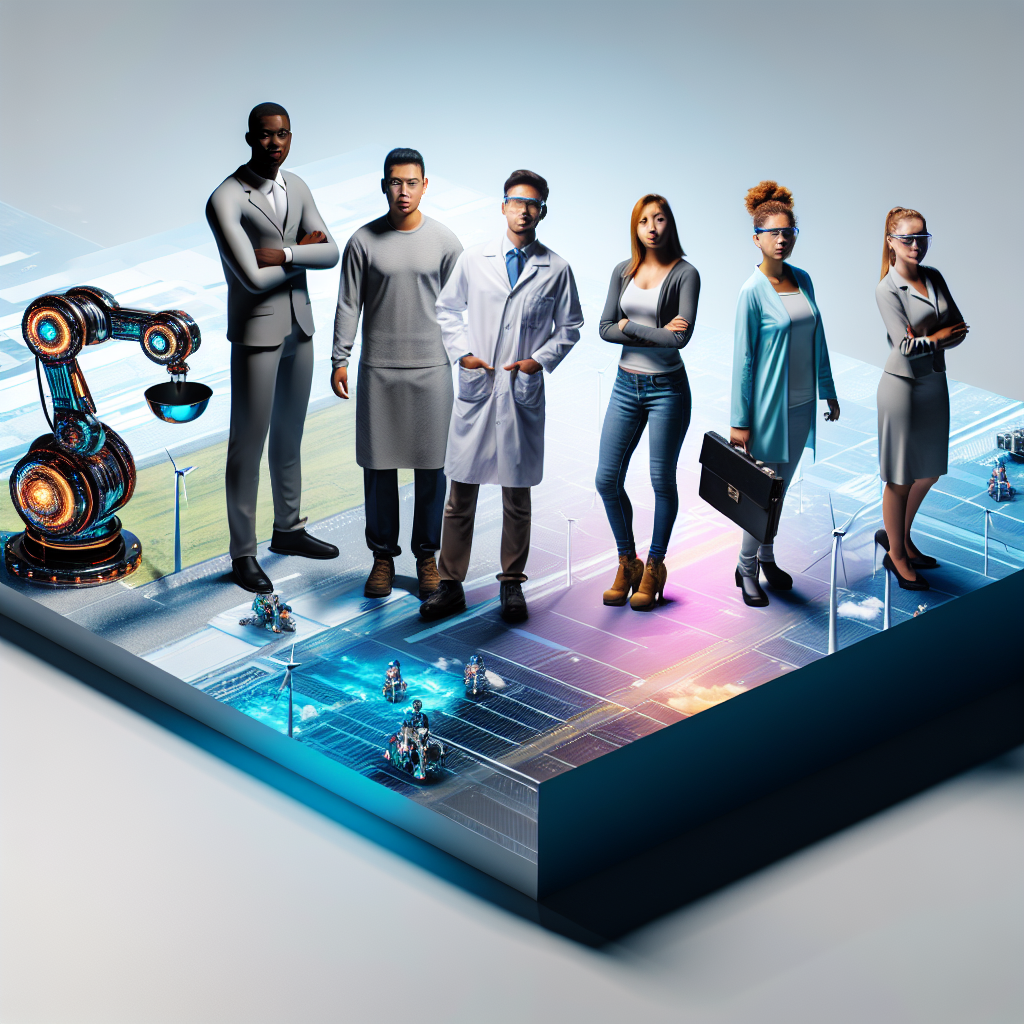🔵 Progressive Analysis
Meta reports mixed financial results amid spree of AI hiring and spending
🤖 AI-Generated Illustration by Mobile Digest
Content: As Meta reports record quarterly revenue, the tech giant's multibillion-dollar hiring spree focused on artificial intelligence talent has raised eyebrows among industry watchdogs and social justice advocates. The company's mixed financial results, which included a significant drop in earnin...
Content: As Meta reports record quarterly revenue, the tech giant's multibillion-dollar hiring spree focused on artificial intelligence talent has raised eyebrows among industry watchdogs and social justice advocates. The company's mixed financial results, which included a significant drop in earnings per share due to a substantial one-time tax charge, have sparked discussions about corporate responsibility and the need for increased government oversight in the rapidly evolving AI industry.
Critics argue that Meta's aggressive pursuit of AI talent may exacerbate existing inequities in the tech sector, where underrepresented communities have long struggled to gain a foothold. The company's hiring practices have come under scrutiny, with calls for greater transparency and diversity initiatives to ensure that the benefits of AI development are distributed more equitably across society.
Moreover, as Meta pours billions into AI research and development, questions have arisen about the potential environmental impact of these resource-intensive endeavors. The energy consumption associated with large-scale AI training and deployment has been a growing concern among environmentalists, who urge tech companies to prioritize sustainability and explore more eco-friendly alternatives.
Advocates for responsible AI development have also highlighted the need for robust ethical frameworks and accountability measures to prevent the misuse of these powerful technologies. As AI becomes increasingly integrated into various aspects of society, from healthcare to criminal justice, it is crucial that companies like Meta prioritize the development of AI systems that are fair, unbiased, and aligned with the public interest.
While Meta's financial success is notable, it is essential that the company's pursuit of AI dominance does not come at the expense of social justice, environmental sustainability, and the well-being of marginalized communities. As the AI race heats up, it is imperative that governments, civil society organizations, and the tech industry work together to ensure that the benefits of these transformative technologies are harnessed for the greater good, rather than further entrenching existing systemic inequities.
Critics argue that Meta's aggressive pursuit of AI talent may exacerbate existing inequities in the tech sector, where underrepresented communities have long struggled to gain a foothold. The company's hiring practices have come under scrutiny, with calls for greater transparency and diversity initiatives to ensure that the benefits of AI development are distributed more equitably across society.
Moreover, as Meta pours billions into AI research and development, questions have arisen about the potential environmental impact of these resource-intensive endeavors. The energy consumption associated with large-scale AI training and deployment has been a growing concern among environmentalists, who urge tech companies to prioritize sustainability and explore more eco-friendly alternatives.
Advocates for responsible AI development have also highlighted the need for robust ethical frameworks and accountability measures to prevent the misuse of these powerful technologies. As AI becomes increasingly integrated into various aspects of society, from healthcare to criminal justice, it is crucial that companies like Meta prioritize the development of AI systems that are fair, unbiased, and aligned with the public interest.
While Meta's financial success is notable, it is essential that the company's pursuit of AI dominance does not come at the expense of social justice, environmental sustainability, and the well-being of marginalized communities. As the AI race heats up, it is imperative that governments, civil society organizations, and the tech industry work together to ensure that the benefits of these transformative technologies are harnessed for the greater good, rather than further entrenching existing systemic inequities.
